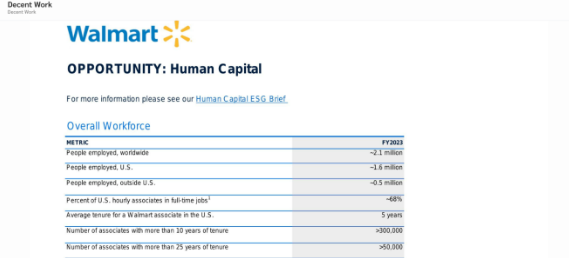
Uncovering the Rise of the Working Poor: Walmart, DoorDash, Amazon

While the rise of the “gig economy” has improved the lifestyles of many consumers, with everything from last-minute birthday gifts to a Pad Thai lunch ordered and delivered at rapid speed, it is noticeably coupled with the emergence of the “working poor”.
Three American giants came under fire last month after the Financial Times published an explosive investigative piece (https://www.ft.com/content/efc1d320-9ee2-45d2-ac11-476479e5ac31). They reported that a UN special rapporteur on extreme poverty and human rights wrote to Walmart, Amazon and Doordash requesting responses to allegations of poor treatment of workers – felt most severely by workers without permanent contracts. Only Amazon responded to the UN letters.
By treating workers as ‘independent contractors’, companies avoid obligations to their workforce, paying them below the living wage without benefits and keeping them in unstable employment.
The result is the working poor. These are workers who, despite their long hours, are dependent on government food stamps and are unable to afford reasonable accommodation.
I delved into data captured by Integrum ESG to see what evidence there was for these three big names shunning their responsibility towards their workforce by focusing on their disclosure surrounding employee contracts.
The results were disappointing. All three companies failed to disclose the percentage of workers on temporary contracts. They all also only give approximated data – giving the figure for the total workforce to the nearest hundred for Doordash and the nearest thousand for Amazon and Walmart. As a result of this insufficient disclosure, Integrum ESG have scored the three companies poorly for the Impact metric ‘Decent Work’.

Our investigation also found that Uber, Lyft, Deliveroo, and Just Eat Takeaway are also companies that fail to disclose a breakdown of their workforce employment contracts.
With such major market players who are responsible for so many in the labour market failing to disclose key data surrounding the legal protections for their workers, it is very difficult to tell how many workers are in insecure and inadequate employment. Ultimately, this transparency hinders efforts to effectively address and rectify the systemic challenges faced by the workforce.
Written by Integrum ESG analyst Hazel Cranmer.